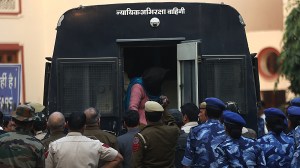SC rules out US standards on OBC quota law
The Supreme Court has ruled out the applicability of American standards to review the law providing 27% quota for OBCs.

The Supreme Court has ruled out the applicability of American standards to review the law providing 27 per cent quota for OBCs in central educational institutions, saying “the gamut of affirmative action in India is fully supported by Constitutional provisions”.
The five-judge Constitution Bench headed by Chief Justice K G Balakrishnan was unanimous that the US practice of putting ‘suspect legislation’ to ‘strict scrutiny’ cannot be applied to examine the Constitution (93rd Amendment) Act enabling the Government to make law providing reservation.
“We have not applied the principles of suspect legislation and we have been following the doctrine that every legislation passed by Parliament is presumed to be Constitutionally valid unless otherwise proved,” the CJI said, and whose view was shared by Justice R V Raveendran.
On the same lines, Justices Arijit Pasayat and C K Thakker said, “while interpreting the Constitutional provisions, foreign decisions do not have great determinative value … the strict scrutiny test is not applicable and indepth scrutiny has to be made to decide constitutionality or otherwise of a statute”.
Justice Dalveer, who was more categorical in refusing the argument, said, “the decisions of foreign country are not binding on Indian courts. Indian Courts have not adopted American standards of review”.
He held that for challenging the law providing OBC quota, the principles enunciated by the US Supreme Court are not strictly applicable as “cases decided by other countries are not binding but do have great persuasive value”.



- 01
- 02
- 03
- 04
- 05




























